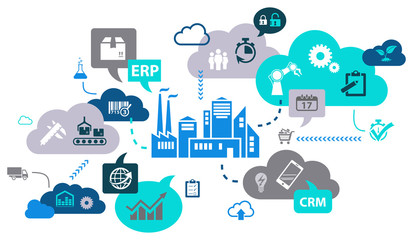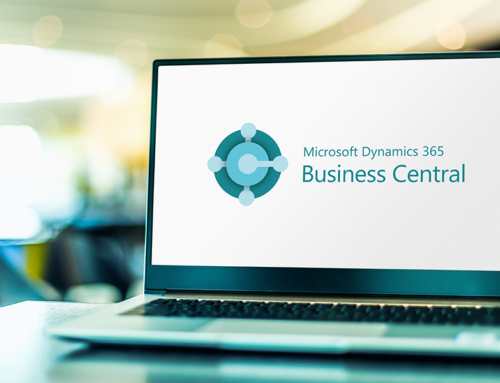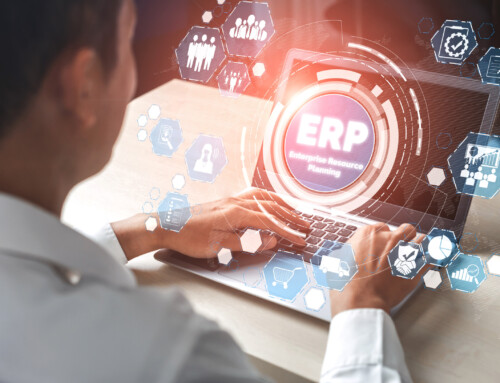
Supply chains have taken plenty of hits over the last two years or so. With the pandemic, supply chain management became even more critical to organisations – of all shapes and sizes. As the world seems to be keeping COVID-19 under control, businesses can finally return to long dormant projects that were put on hold back in March 2020, when the world changed.
For many, these projects will revolve around ERP. Business systems, such as ERP, are such large projects that require significant monetary investment. The question is: how can ERP help businesses when it comes to supply chain management?
The type of improvements ERP can provide as part of its implementation work seamlessly with supply chain management. Some of the improvements, include:
- increased productivity across multiple departments and organisations working within the supply chain
- improved customer service, which in turn leads to more satisfied customers
- workflow automation, freeing up employees for more meaningful tasks/roles within their job
- IT problems are less likely to create bottlenecks to impede efficiency
- more flexible supply chain solutions that may be adapted to meet the needs of changing circumstances or future business growth and expansion

A Supply Chain Management system is critical for getting into real-time, high-level information and data from various departments and businesses. It might not be that noticeable, but without clear insight into the activities and working processes that make up your supply chain, you could be left trailing behind your competitors.
The role ERP systems play within several aspects of the creation and maintenance of a superior Supply Chain Management process include:
Supply Chain Planning
Supply chain planning focuses on marketing channels and promotions, as well as determining stock and quantity levels required. It is critical that the planning includes provisions for replenishment and production policies that enable your business to be able to keep up with demand. ERP systems offer an easier way to establish and alter the parameters within which a supply chain is required to operate.
Purchasing, Procurement and Execution
Feature-rich ERP software applications provide a more effective way to handle the procurement and supply of the goods, services and other resources that are needed across the supply chain. From transportation processes to warehouse and manufacturing resources, business systems offer visibility over various platforms, that benefit all aspects of your supply chain.
Monitoring & Maintenance
The ability to detect, evaluate and change supply chain activities in real-time is essential. It helps ensure your business can sustain the flexibility needed to stay aggressive among your competitors and ensure operations remain cost-effective at all points.
Measurement & Assessment
Usually, comparing your organisation’s actual activity against its set goals and objectives can be difficult. It often relies upon a supply chain that utilises multiple standalone systems and workflow processes – which is often next to impossible to be able to pull ‘bigger picture’ information from.
On the other hand, ERP systems offer clarity of information. The way a system aggregates its information ensures that any unwelcome anomalies throughout the supply chain are identified with speed and addressed just as quickly. As discussed, this leads to a supply of quality information that allows for better informed decision-making at the top end of the business.
Choosing the best ERP & Supply Chain strategy
Organisations that have an ERP system implemented and in place, may have already collected information and have an essential macro-view of the organisation’s existing workflow and processes. But the implementation phase of the project should be looking at how this information can be taken and applied to construct a more effective and efficient supply chain model.
Some organisations may have several standalone supply chain management systems already in place. But what they are often missing is a centralised system to pull these processes, and the information that comes with them, together. Enter ERP.
Businesses that do already use these different systems will eventually benefit from the integration and implementation of an ERP system. The system will offer cross-platform access to the inventory, financial and manufacturing information needed to design a supply chain management process that will provide superior performance.
There are no straightforward rules when it comes to deciding which system to implement first. The specific needs and circumstances of your business must be considered before reading a resolution.
In Conclusion…
The inter-departmental and multi-organisational nature of supply chains makes effective management a problem for businesses that do not have the right systems already in place. This makes it more likely for information to be duplicated or incorrect, which will cause a business further pain. As a result, ERP systems are imperative in the creation and implementation of an efficient supply chain process.
A poorly managed or even an outdated, legacy-based supply chain process is a liability that no business can overlook. The integration of supply chain management into ERP means that you can deliver your products and services to end users with improvements in speed, efficiency and overall functionality.
To see for yourself how the power of ERP can help improve your supply chain management, call the experts today at Neuways. Call 01283 753 333 or email hello@neuways.com.





